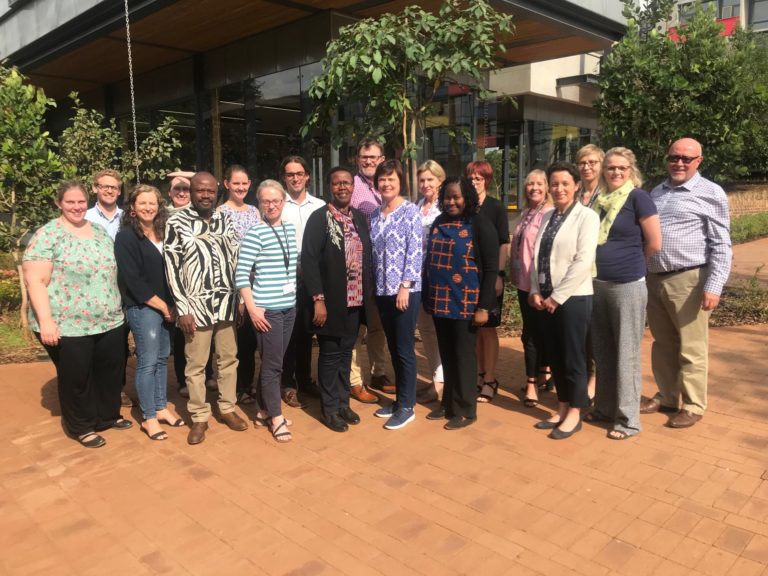AFRICAP colleagues key partners in new £2 million Africa-UK research network

Sub-Saharan Africa is the most food-insecure region in the world. Despite challenges of poverty and malnutrition, in many countries, people rely on agriculture not only for food – but also for their livelihoods.
A new £2 million programme, Food Systems Research Network for Africa (FSNet-Africa), will utilise interdisciplinary research to develop a new understanding of the African food system, tackling food insecurity and malnutrition from the ground up.
Announced on 9 July, the project is one of four projects funded by UK Research and Innovation (UKRI) and African Research Universities Alliance (ARUA), through a partnership effort aimed at tackling global challenges of disease, poverty, climate change, and food insecurity.
Led by the University of Pretoria in partnership with the University of Leeds and the Food, Agriculture and National Resources Policy Analysis Network (FANRPAN), the three-year programme operates in six sub-Saharan African countries, namely Ghana, Kenya, Malawi, South Africa, Tanzania and Zambia.
Professor Frans Swanepoel of the University of Pretoria and Principal Investigator for FSNet-Africa says overcoming Africa’s development challenges cannot be separated from the need to transform the continent’s food systems.
He said: “One in four people in sub-Saharan Africa face food insecurity and Africa will need to produce 80% more food by 2050. The challenge is not only to ensure that adequate food is accessible, but to provide safe and nutritious food as African countries are confronted by the triple burden of malnutrition.”
Programme harvests potential of early career researchers
FSNet-Africa seeks to build capacity and long-term sustainability in sub-Saharan partner countries through mentorship of early career researchers.
Successful applicants will receive dual mentorship from the University of Leeds and one of ten academic institutions in the six focal countries, a list which includes the University of Pretoria. Through structured two-year fellowships, researchers will co-design projects that yield climate-smart, nutrition-sensitive and poverty-reducing solutions.
Fellowship projects can range across an interdisciplinary spectrum, targeting areas from farming and productivity to trade, distribution and marketing, food storage, safety, nutrition and more.
Dr. Claire Quinn, Priestley Centre researcher and AFRICAP’s lead for policy design and implementation, is also the lead investigator of FSNet-Africa from the UK. She emphasises that the research triads are a unique method of building on existing partnerships between the UK and Africa whilst realising new opportunities for research, training and policy advocacy.
She said: “The University of Leeds has developed strong partnerships with FANRPAN and within our focal countries through ongoing UKRI-funded programmes, AFRICAP and African SWIFT, which examine food system resilience, and weather forecasting and communications. By leveraging the expertise available in these networks, FSNet-Africa will help fellows build lasting research communities and develop the skills necessary to design and implement climate-smart solutions capable of addressing food security, alleviating malnutrition, and helping eliminate poverty.”
With guidance from FANRPAN, a core AFRICAP partner, researchers will also engage with policymakers, private sector players and grassroots organisations in their focal country to translate research findings into implementable solutions.
Dr. Tshilidzi Madzivhandila, AFRICAP project co-lead, FANRPAN CEO and Stakeholder Engagement Coordinator for FSNet-Africa, emphasized that meaningful engagement of all state and non-state food system stakeholders across the continent will make agriculture and food production in Africa more productive, sustainable and resilient to climate change.
